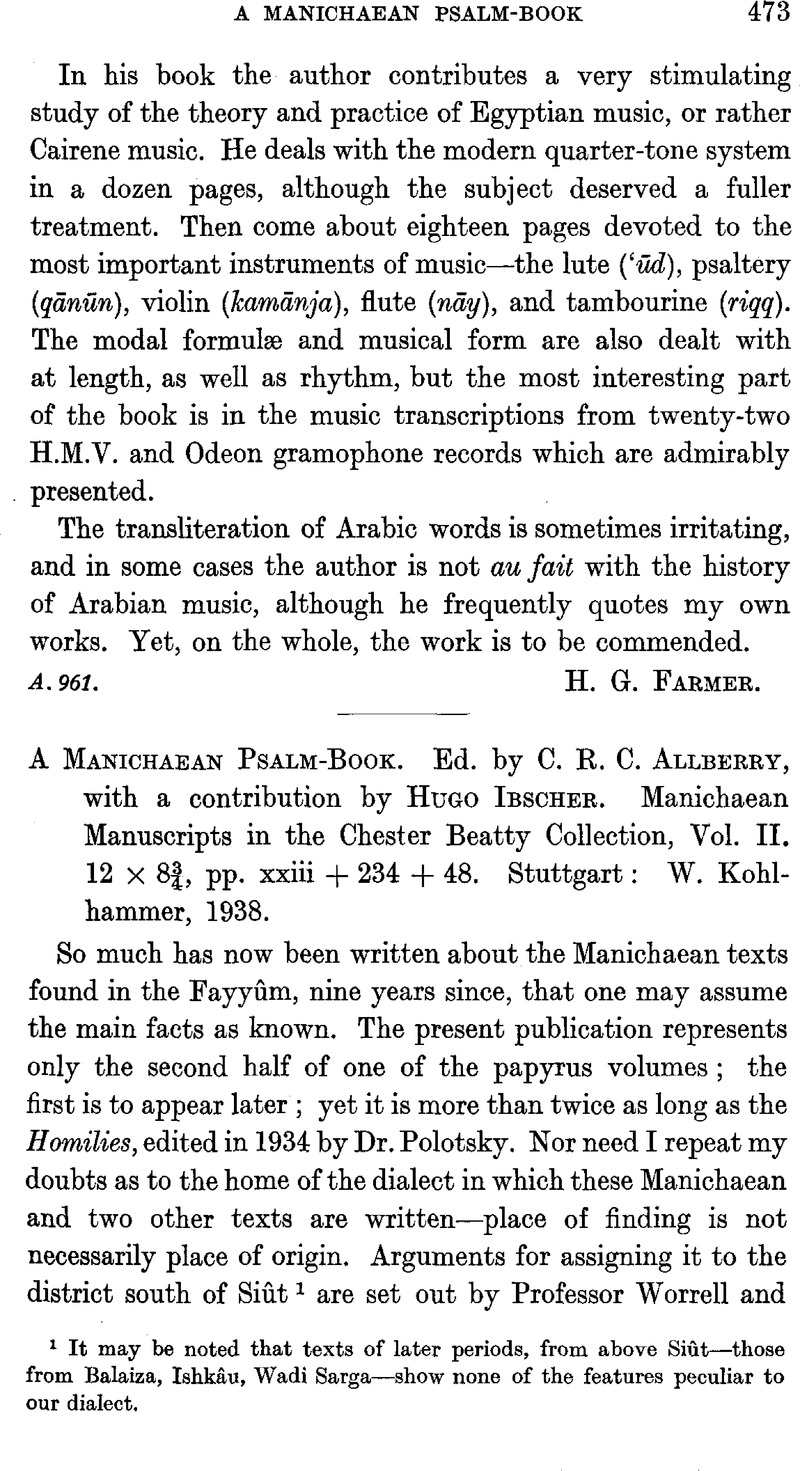No CrossRef data available.
Published online by Cambridge University Press: 15 March 2011

page 473 note 1 It may be noted that texts of later periods, from above Siût—those from Balaiza, Ishkâu, Wadi Sarga—show none of the features peculiar to our dialect.
page 474 note 1 Worrell, W. H., Coptic Sounds, 74 ff.Google Scholar, Chaîne, M., Les Dialectes Coptes Assioutiques, 15 ff.Google Scholar
page 474 note 2 Bell, , Jews and Christians, Pap. 1921Google Scholar. Cf. ib., p. 43 ff.
page 474 note 3 Isolated A 2 words at Thebes: ![]() CO. 282,
CO. 282, ![]() ST. 240,
ST. 240, ![]() Dict. 827b.
Dict. 827b.
page 475 note 1 An Aramaic-speaking translator would be prone to this. It occurs too often to be a scribal lapse.
page 475 note 2 Similarly in 15015 before ![]() .
.
page 475 note 3 Are these omissions archaic? They recall demotic usage.
page 476 note 1 Patr. Nic. Nom. 80 = Zoega 244.
page 476 note 2 PG. 25, 372. Presumably the same man Sozomen, ii, 25 (PG. 67, 1004) and? in Mitteis, Griech. Urk., no. 43. One may recall that the name Πλοτινος (cf. Πλοτινος in Middle Egypt) was borne by a reputed native of Siût, and wonder if Προμος may be its equivalent. On Schmidt-Polotsky, Hypsele C., Mani Fund, 12Google Scholar.
page 476 note 3 Perhaps it may be noted that Siût was the home of the Meletians and that there were Meletians near to Medinet Madi, the finding-place of these papyri (PG. 65, 405).